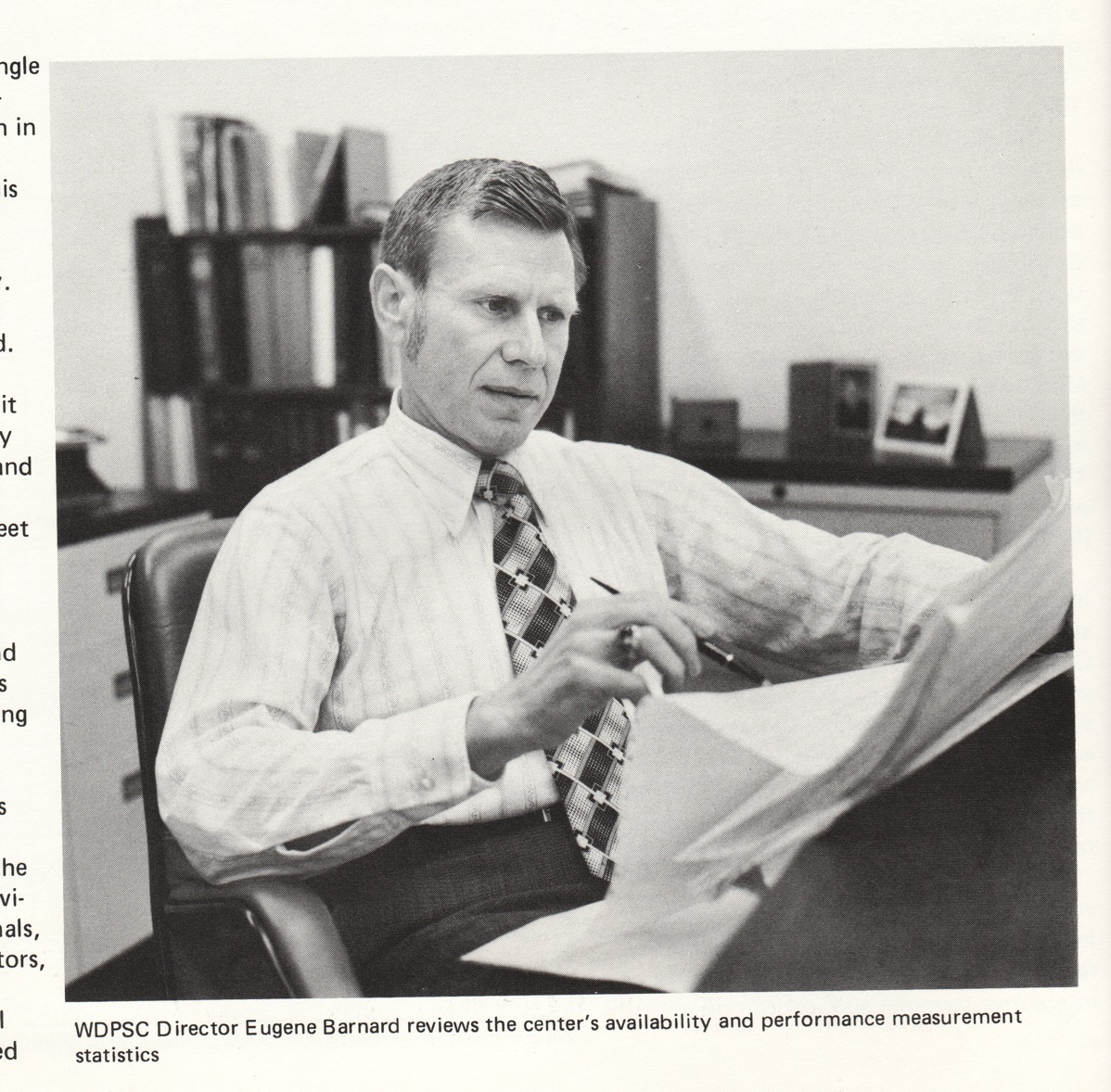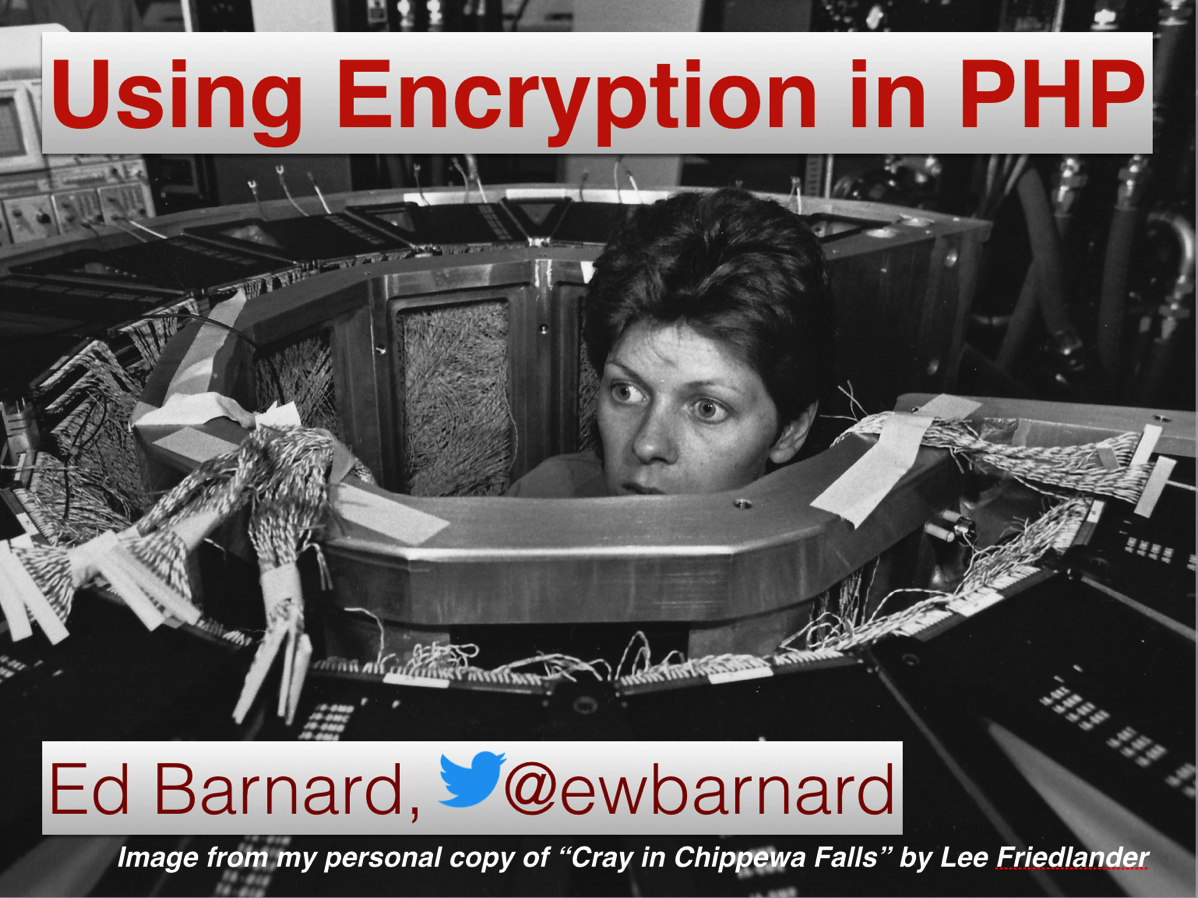Computing Past: Mel, the Realest Programmer of All
Additional reading related to Computing Past: Mel, the Realest Programmer of All:
- The Elements of Computing Systems: Building a Modern Computer from First Principles. “This book is organized around the idea of building a computer from the fundamental logic gates up.” (From an Amazon review.) James Seibel recommends this book.
- “So you want to work in security?” By Parisa Tabriz. This is an excellent article about our each creating a place in our profession.
- “Google’s Chrome Hackers Are About to Upend Your Idea of Web Security” by Andy Greenberg. The article is about security rather than vacuum tube programming, but is great background on Parisa Tabriz and her team.
The year 1982 produced a best-selling book Real Men Don’t Eat Quiche. Ed Post, of Tektronix, Inc., sent a letter to the editor of Datamation in July 1983 titled “Real Programmers Don’t Use Pascal.”
- The article: http://www.pbm.com/~lindahl/real.programmers.html
- Background on the Datamation article: https://en.wikipedia.org/wiki/Real_Programmers_Don%27t_Use_Pascal
“The Story of Mel,” the realest programmer of all, is a brilliant (and true) portrayal from a year later:
- The article: http://www.pbm.com/~lindahl/mel.html (there is a photo at the bottom of the page)
- The background, in Wikipedia: https://en.wikipedia.org/wiki/The_Story_of_Mel
James Seibel wrote an excellent explanation about “The Story of Mel” for the young-un’s who have never beheld actual core memory:
Don’t miss his “Addendum” at the end of the article. It’s a great perspective for all of us. Each of us has the capacity to be a Real Programmer.

Librascope LGP-30:
- Ed Thelen’s page on the Librascope LGP-30: http://ed-thelen.org/comp-hist/lgp-30.html
- Wikipedia article: https://en.wikipedia.org/wiki/LGP-30
- Stuttgart restoration: http://computermuseum.informatik.uni-stuttgart.de/dev_en/lgp30/lgp30_1.html and http://computermuseum.informatik.uni-stuttgart.de/dev_en/lgp30/
- Follow links on the above page to programming manuals, etc.
My slide deck with presenter notes: http://otscripts.com/wp-content/uploads/2017/05/Mel-php-tek.pdf
The photo is of my father, circa 1977 (Director of Washington State Data Processing Service Center).
Categories: Slide Decks Tags:
Big Iron: Reading List
Additional reading related to Big Iron: PHP Lessons from Cold War supercomputing:
- The Elements of Computing Systems: Building a Modern Computer from First Principles. “This book is organized around the idea of building a computer from the fundamental logic gates up.” (From an Amazon review.) James Seibel recommends this book.
- “So you want to work in security?” By Parisa Tabriz. This is an excellent article about our each creating a place in our profession.
- “Google’s Chrome Hackers Are About to Upend Your Idea of Web Security” by Andy Greenberg. The article is about security rather than Big Iron, but is great background on Parisa Tabriz and her team.
The year 1982 produced a best-selling book Real Men Don’t Eat Quiche. Ed Post, of Tektronix, Inc., sent a letter to the editor of Datamation in July 1983 titled “Real Programmers Don’t Use Pascal.”
- The article: http://www.pbm.com/~lindahl/real.programmers.html
- Background on the Datamation article: https://en.wikipedia.org/wiki/Real_Programmers_Don%27t_Use_Pascal
“The Story of Mel,” the realest programmer of all, is a brilliant (and true) portrayal from a year later:
- The article: http://www.pbm.com/~lindahl/mel.html (there is a photo at the bottom of the page)
- The background, in Wikipedia: https://en.wikipedia.org/wiki/The_Story_of_Mel
Finally, James Seibel wrote an excellent explanation about “The Story of Mel” for the young-un’s who have never beheld actual core memory:
Don’t miss his “Addendum” at the end of the article. It’s a great perspective for all of us. Each of us has the capacity to be a Real Programmer.
Categories: Slide Decks Tags:
Finding Value in a PHP Conference
Elizabeth Smith’s keynote at Midwest PHP brought me into the PHP community. Cal Evans reinforced the idea with ways to participate and give back to the community.
“PHP Conference” and “PHP Community” are not the same. But, in my mind, they’re closely tied together because it’s at the conferences that I experience the best parts of our community. It’s at the conferences that I see we are a community.
The Value of Conferences
Each PHP conference that I’ve attended has directly impacted my work projects.
Last March, I attended Midwest PHP 2016.
Categories: Slide Decks Tags:
Getting the Most out of a PHP Conference
“Uncle Cal” Evans writes “Conference !== Family Reunion” in the October 2016 issue of php[architect]. He talks about being part of the “in group.” What can we do to make any conference suck less for new attendees?
Having just returned from the excellent 2016 Madison (Wisconsin, USA) PHP Conference, I can see the problem. I don’t have any answers, but I am hereby collecting links to any wisdom I can find. Please send me suggestions, to @ewbarnard. Thank you!
Cal Evans’s voice of experience:
- Make a list of people you want to meet.
- Look at the speakers list.
- Look at the people tweeting about the conference.
- Are there any attendees you want to meet?
- Make a list BEFORE you leave.
- This isn’t just fanboi “Oh gosh it’s great to meet you [Mr.|Ms.] Whatever.
- These could be networking opportunities, job seeking opportunities, whatever.
- Regardless of why you want to meet someone, if you don’t make a list before hand, you probably won’t get around to it at the conference.
Cheers!
=C=
Follow up after a conference matters too. Jump on IRC and keep in touch with the people you meet 🙂
Relevant Articles:
- 7 Tips For PHP[TEK] by Ben Ramsey
- Finding Value in a PHP Conference by Ed Barnard
- Getting the most out of a research conference on an academic mailing list archive
Can you suggest any online resources I could include? Again, thank you!
Categories: Slide Decks Tags:
Using Encryption in PHP
Presented at Madison PHP 2016
Using encryption sounds simple. It is! The trouble is that encryption is extremely difficult to get right. In fact it’s a great way to grab news headlines when you get it spectacularly wrong.

This talk focuses on two basic concepts you need to understand when getting PHP’s encryption to work in your application: obtaining randomness, and encrypting/decrypting a string with cryptographic checksum.
I include an extensive curated PHP security reading list with explanations.
About Edward Barnard (@ewbarnard)
Ed Barnard has been programming computers since keypunches were in common use. He’s been interested in codes and secret writing, not to mention having built a binary adder, since grade school. These days he does PHP and MySQL for InboxDollars.com. He believes software craftsmanship is as much about sharing your experience with others, as it is about gaining the experience yourself. The surest route to thorough knowledge of a subject is to teach it.
Additional Material
- Rate this talk: https://joind.in/event/madison-php-conference-2016/using-encryption-in-php
- Cryptography Reading List: http://otscripts.com/cryptography-reading-list/
- Security Reading List: http://otscripts.com/security-reading-list/
- Slide Deck: http://otscripts.com/wp-content/uploads/2016/10/UsingEncryption-v02.pdf
Categories: Slide Decks Tags: